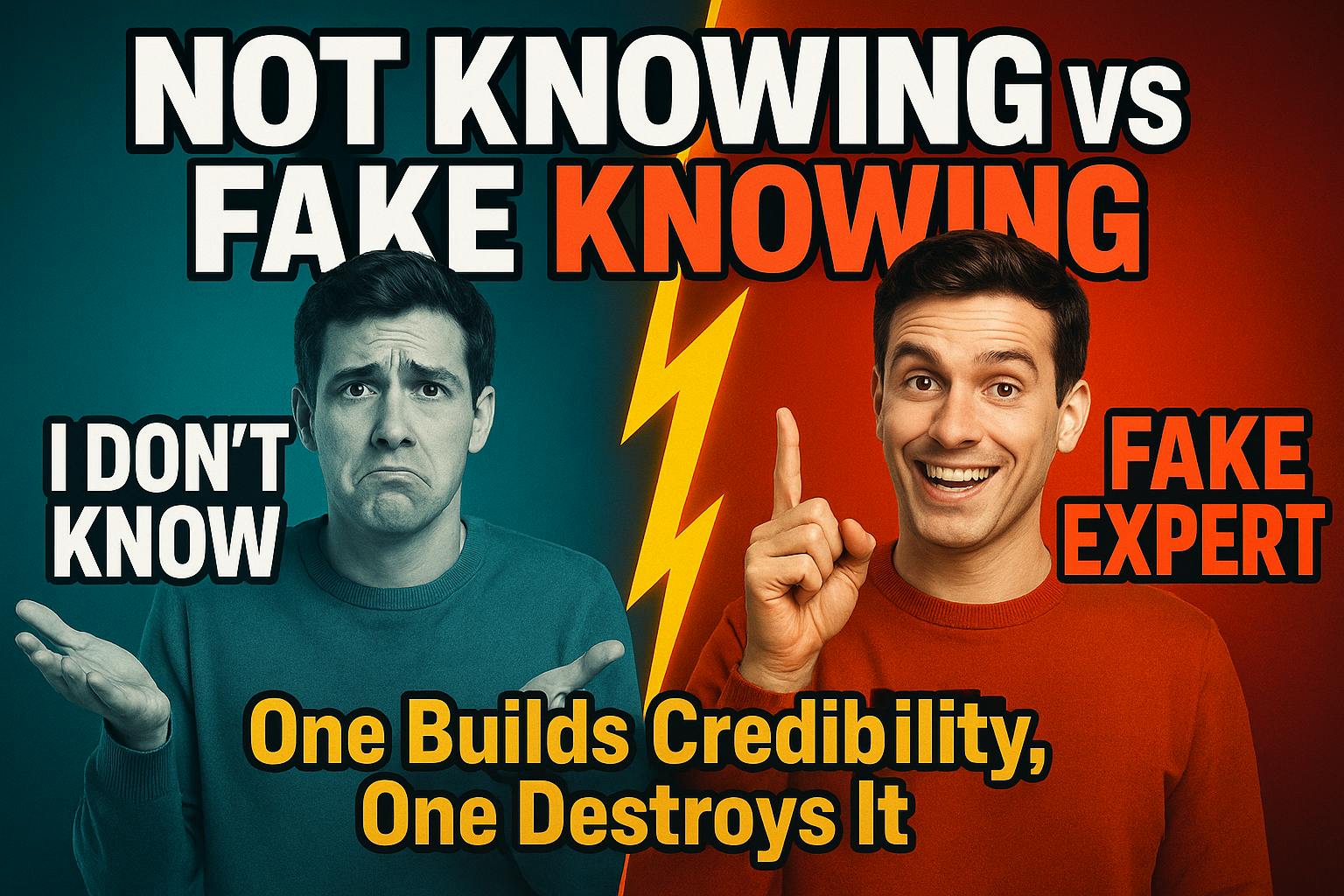
"Not knowing is a temporary state. It's the honest admission that you lack information, experience, or understanding about something specific."
"Fake knowing is a permanent trap. It's the performance of expertise you don't possess, driven by ego, insecurity, or the misguided belief that admitting ignorance is weakness."
"Most professionals are terrified of saying 'I don't know.' They've been conditioned to believe that expertise means having all the answers."
"The most effective people I know have mastered a counterintuitive skill: they're confident in their ability to figure things out, not in already having figured everything out."
Not knowing represents a temporary and honest acknowledgment of a lack of information, allowing for growth and learning. In contrast, fake knowing creates a false sense of expertise and stifles true understanding. The pressure on professionals to appear knowledgeable often leads to overconfidence and flawed decision-making based on incomplete information. The cycle of pretending to know builds layers of ignorance, ultimately damaging credibility and hindering progress. Embracing intellectual humility allows individuals to recognize the value of curiosity and continuous improvement in their professional abilities.
Read at Hackernoon
Unable to calculate read time
Collection
[
|
...
]